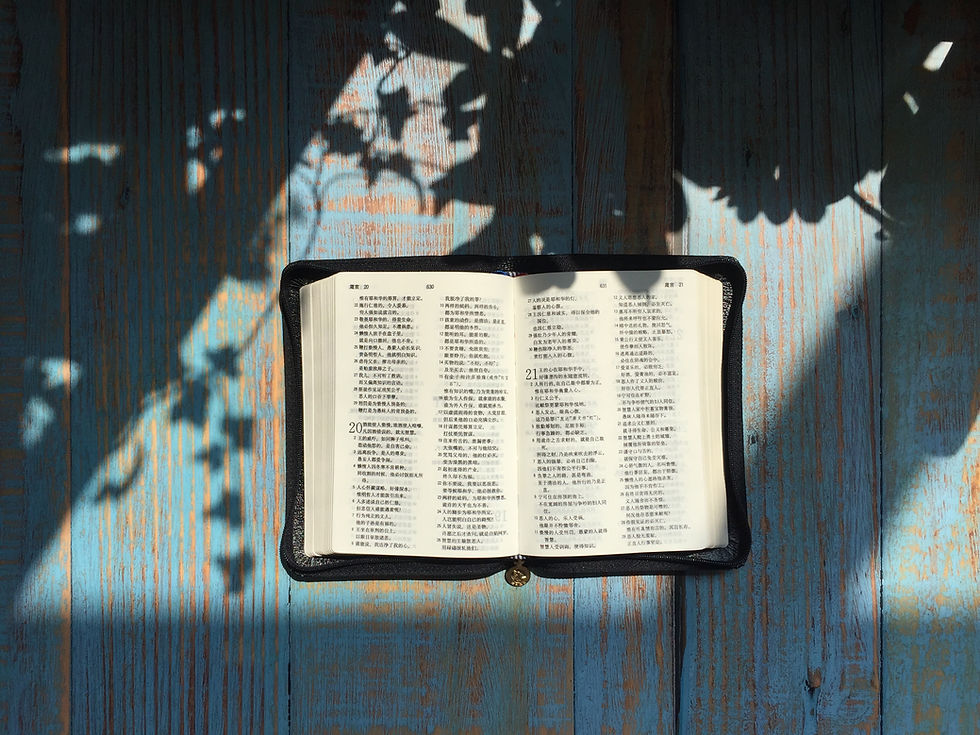Where Should I Start Reading the Bible?
- Deedee Muehlbauer
- Jul 9, 2021
- 2 min read

That's a common question people ask, and there are MANY different plans. There are daily Bible reading plans, chronological Bible reading plans, 90 day Bible reading plans and on and on. So, how is the one I'm coming up with different?
Let's be honest. If you've never read the Bible and you get into books like Deuteronomy, Leviticus, or one of the prophets, you might get a little distracted by the details or confused. Paul tells Timothy, “All Scripture is breathed out by God and profitable for teaching, for reproof, for correction, and for training in righteousness, that the man of God may be complete, equipped for every good work” (2 Timothy 3:16-17).
So ALL of the Bible is important for various reasons, even the parts that tend to be less exciting like laws, how to construct the tabernacle, how the feasts and festivals work, and census numbers. It’s ALL profitable.
As I delve deeper into the Bible those details help me get a better picture of an event or understanding of what Jesus meant in his teachings, but I understand how someone beginning to read the Bible might get confused or lost in the details.
I’m attempting to create a reading plan that will introduce the main points of the Bible; but again, I can’t reiterate enough that every part of the Bible is “breathed out by God and profitable” including the parts that we might not understand how they are profitable.
I haven't finished the whole plan yet, but I wanted to share part of it this week.
I’ve grouped the Gospels into parallel accounts, which means I’ve put the stories that happen in multiple Gospels together. I’ve indicated passages that are only in one Gospel. You’ll find the download below. Next week I hope to have the rest of the plan!
Enjoy!



Comments